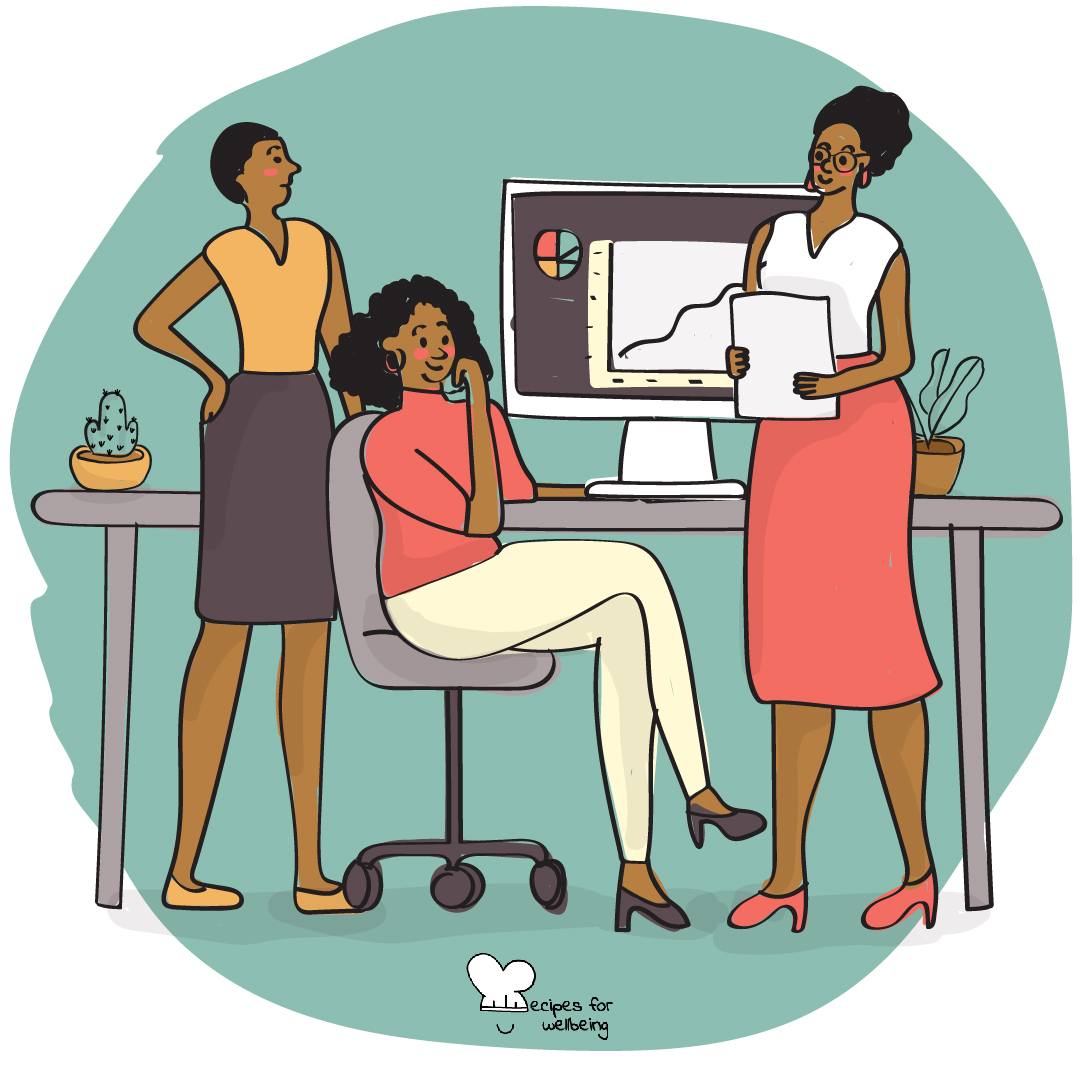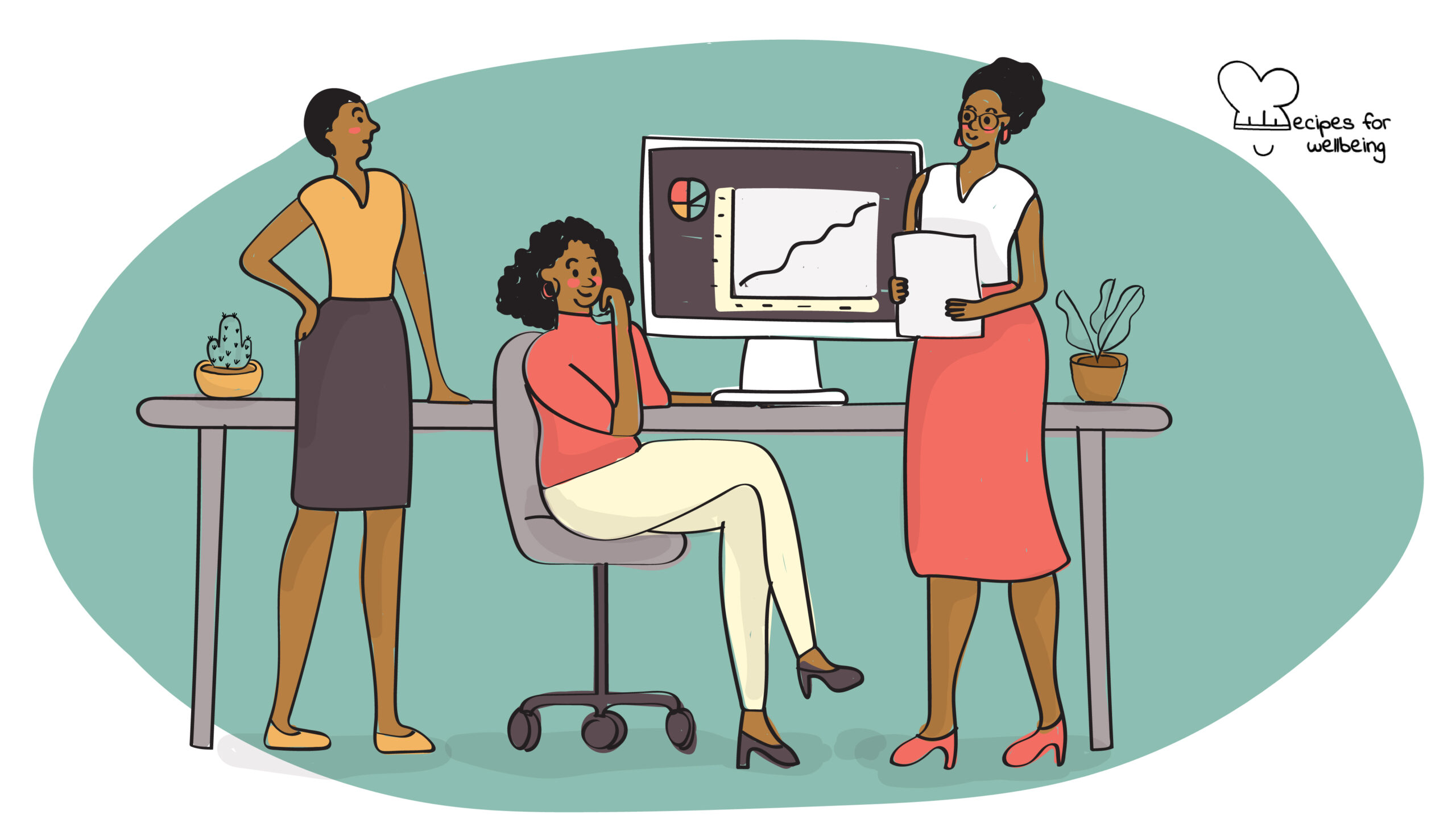
Stopping micro-aggressions for women of colour in employment
You may write me down in history
With your bitter, twisted lies,
You may tread me in the very dirt
But still, like dust, I’ll rise […]
―Maya Angelou
👥 Serves: 1 person, 11-25 people, 2-10 people, 26-40 people, 41+ people
🎚 Difficulty: Medium
⏳ Total time: Ongoing
🥣 Ingredients: Your team
🤓 Wholebeing Domains: Community, Liberatory Learning, Radical Care
💪 Wholebeing Skills: Acknowledgement, Allyship, Challenging, Equity, Holding space, Intentionality, Liberation, Relating to Others, Respect

Stopping micro-aggressions for women of colour in employment
📝 Description
A set of examples to raise awareness of micro-aggressions for women of colour in employment.
Women of colour experience many barriers in the workplace, which both affects their potential as individual employees and the effectiveness of the organisation as a whole. Whilst there are important structural and systemic barriers that need to be addressed, the following activity raises awareness of the micro-aggressions perpetrated against women of colour in the workplace. As ENAR’s points out, “many women of colour experience instances of mistreatment relating to their gender, race, ethnicity, religion, or all of the above in the workplace.”
This activity shares a few examples of the so-called micro-aggressions, which describe “commonplace encounters which convey insult, negative sentiments or indignity towards a member of a marginalised group.” By raising the awareness of these micro-aggressions in your team and organisation, you can take an important step forward towards creating a safer space for women of colour in your workplace. We would like to thank the European Network Against Racism for putting together an insightful and practical toolkit to support and empower women of colour in the workplace.
Source: Adapted from Business Insider, 2018. ‘9 Things People Think Are Fine to Say at Work – but Are Actually Racist, Sexist, or Offensive’. Available at https://www.businessinsider.in/miscellaneous/9-things-people-think-are-fine-to-say-at-work-but-are-actually-racist-sexist-or-offensive/slidelist/64848231.cms and the Women of Colour steering group meeting.
👣 Steps
Example 1: “Sorry, I mistook you for [insert colleague name here]”
Many people of colour have been confused with another colleague of the same race. Mistakes like this suggest that the person believes all members of that racial group look alike or simply that they do not pay much attention to the colleagues in question beyond their race identity.
Example 2: “Is that your real hair?”
For many black women, a focus on their hair at work is a source of discomfort. Questions and comments about black women’s hair convey numerous suggestions: that the person is conscious of the ‘difference’ of this hairstyle, that the person views certain hairstyles as unprofessional or otherwise worthy of comment. Attention of this kind is not given to the hairstyles of white people, which are perceived as the norm, and can make women feel scrutinised.
Example 3: “Sorry – I was waiting to speak with management.”
Women of colour in particular are assumed to be in junior positions. While there is a lack of representation of women of colour in leadership, the result of this assumption is to undermine those that do reach management levels. Similar micro-aggressions include assuming that the woman of colour is an intern or automatically assume the male or white female colleague is senior. This carries a suggestion that women of colour are less likely to be competent or authoritative.
Example 4: “Where are you really from?”
A common micro-aggression against people of colour generally is an interrogation into their racial origins. This question can be frustrating because it is based on the premise that people of colour do not generally belong in that given context, whether it be in that organisation, field, or country. It is also a frequently asked question and can be a daily task for people of colour to have to explain their presence.
Example 5: [Interruption]
Interruptions of women of colour are a frequent occurrence in most workplaces, often by men and white women. This situation is frustrating, unproductive and indicative of a power imbalance causing men or white women to believe their thoughts are more valid and important.
Example 6: “We don’t see colour, race is not relevant in this organisation.”
Complaints by people of colour relating to race are frequently met with denial or defensiveness. The idea that race is not relevant is dismissive of very real concerns relating to inequality or discrimination, and reinforces a dynamic by which white people decide whether there are racial issues in the organisation, rather than those directly affected.”
Example 7: “Women have the same opportunities to reach management as men here – they choose not to.”
This statement also denies that there are any systemic issues within the organisation relating to the progression of women. Underpinning this is the idea that the organisation is a meritocracy and therefore all issues of representation and inequity are explained by individual failings or willingness.

